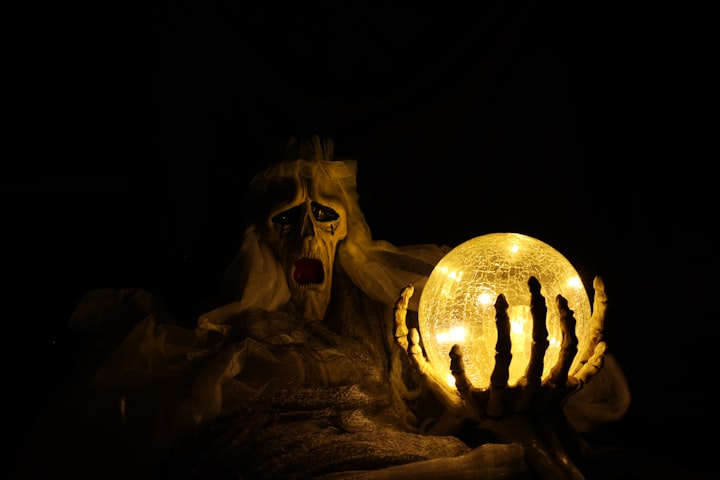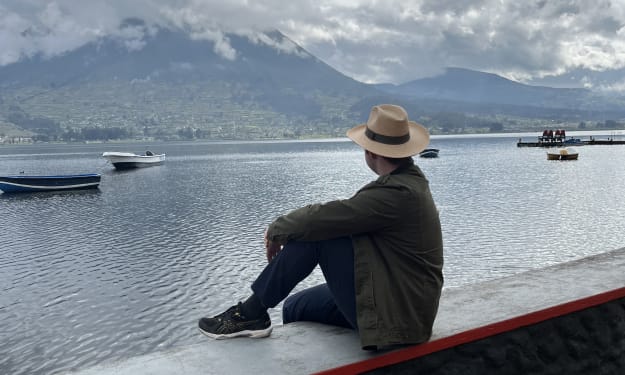Unraveling the Mystery of Ghosts
Separating Fact from Fiction in the Scientific Study of Ghostly Phenomena
Ghosts have been a part of human culture for centuries, inspiring fear and fascination in equal measure. But are ghosts real? And if so, what could be the scientific explanation for their existence? These are questions that have been asked for generations and continue to be the subject of intense debate and investigation.
The belief in ghosts is widespread and deeply rooted in many cultures around the world. People have reported seeing ghostly apparitions, hearing strange noises, and feeling a presence in haunted places. Some believe that ghosts are the spirits of the dead who have not yet moved on to the afterlife, while others believe that they are the result of residual energy or imprints left behind by the living.
However, despite the widespread belief in ghosts, there is no scientific evidence to support their existence. Most scientists and researchers view ghosts as the result of psychological factors, such as vivid imaginations, superstition, and suggestion. For example, some people may interpret the sound of creaking floorboards as the footsteps of a ghost, when in reality it is simply the sound of an old house settling. Similarly, feelings of dread or unease in a haunted place may be due to the power of suggestion and our own beliefs about ghosts, rather than the presence of an actual ghost.
One of the key challenges in the scientific study of ghosts is that they are not directly observable. There is no scientific instrument that can detect the presence of a ghost or measure its properties. This makes it difficult for scientists to study ghostly phenomena in a systematic and controlled way. Additionally, many of the claims about ghosts are based on anecdotal evidence, which is not considered to be reliable or convincing evidence by the scientific community.
Despite these challenges, there have been attempts to study ghostly phenomena from a scientific perspective. Some researchers have attempted to explain ghostly experiences using theories from psychology, neuroscience, and even quantum physics. For example, some have suggested that ghostly experiences may be due to hallucinations or misinterpretations of sensory information caused by a glitch in the brain's processing system. Others have suggested that ghostly phenomena may be the result of a kind of quantum entanglement, where the behavior of particles is connected over long distances.
While these theories offer some intriguing possibilities, it is important to note that they are still speculative and have not been definitively proven. Additionally, the evidence for these theories is largely circumstantial and based on limited data, making it difficult to draw any firm conclusions.
The question of whether ghosts are real remains unanswered. Despite widespread belief in ghostly phenomena, there is no scientific evidence to support their existence. Most scientists and researchers view ghosts as the result of psychological factors, such as vivid imaginations, superstition, and suggestion. While some theories have been proposed to explain ghostly experiences, they are still speculative and have not been definitively proven. The mystery of ghosts is likely to continue to captivate and intrigue people for generations to come, and it remains an important area of investigation for those seeking to understand the nature of reality and the workings of the universe.
While the scientific community may not have a definitive answer to the existence of ghosts, the belief in their existence continues to persist. The idea of ghosts and haunted places has inspired countless stories, movies, and TV shows, and has captured the imagination of people all over the world.
One possible explanation for the persistence of the belief in ghosts is that it satisfies a basic human need for connection with the past and the deceased. For many people, the idea of ghosts offers comfort and the belief that their loved ones are still with them in some way, even after they have passed away. This idea can be particularly powerful in times of grief and loss, and can provide a sense of closure and comfort to those who are grieving.
Another factor that contributes to the belief in ghosts is the lack of a clear explanation for certain unexplained experiences. For example, people may have experiences that they cannot explain, such as seeing a figure in the corner of their eye, or feeling a sudden chill in a room. While these experiences can often be explained by natural causes, such as a draft or an optical illusion, they can also be interpreted as the presence of a ghost, particularly if the person has a belief in the paranormal.
In conclusion, the belief in ghosts and the persistence of ghost stories can be seen as a reflection of our basic human needs and desires. While the scientific community may not have a definitive explanation for ghostly phenomena, the belief in their existence continues to be an important part of human culture and offers comfort and connection to those who believe. Whether ghosts are real or not, the idea of their existence will likely continue to captivate people for generations to come.
About the Creator
Maheshh
Hello, my name is Mahesh. I am a creative individual and I enjoy creating stories, such as ghost stories and fiction. I would like to share my stories and I hope that you will take the time to read them. Thank you.
Enjoyed the story? Support the Creator.
Subscribe for free to receive all their stories in your feed. You could also pledge your support or give them a one-off tip, letting them know you appreciate their work.







Comments
There are no comments for this story
Be the first to respond and start the conversation.